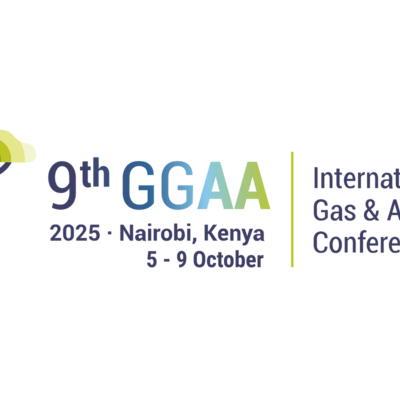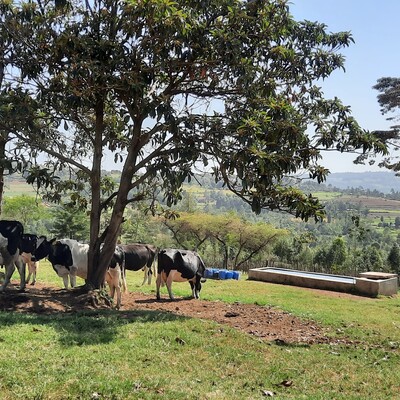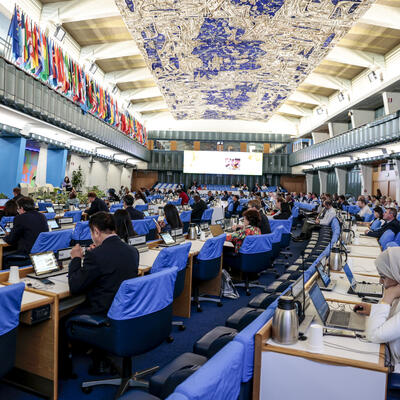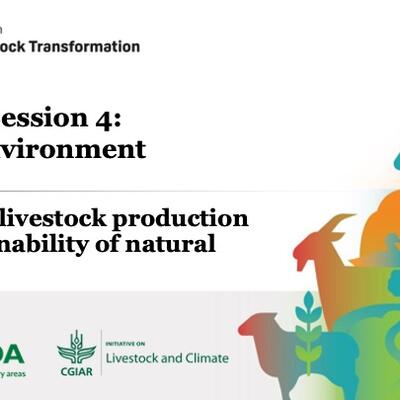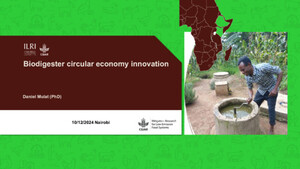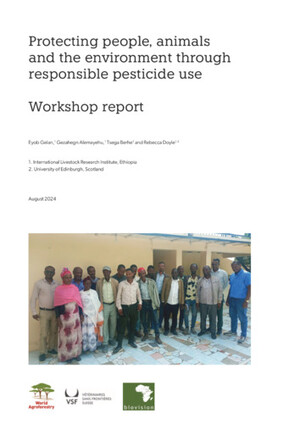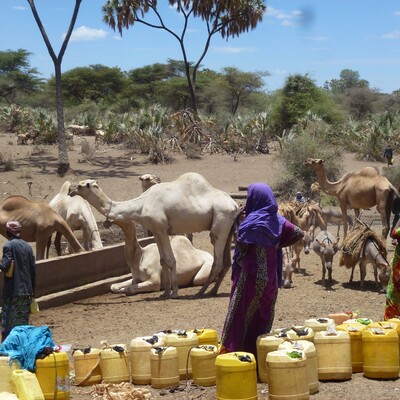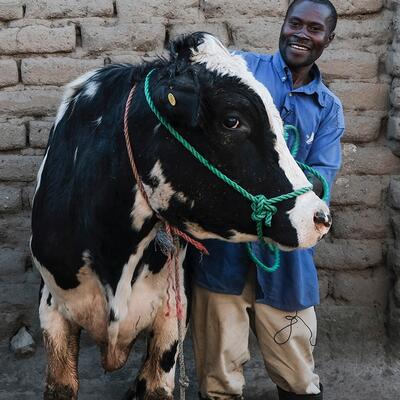

Strengthening wastewater management to improve the environment and public health in Africa
Innovative wastewater management, an often-overlooked aspect of public and environmental health, could reduce pollution, prevent disease outbreaks and contribute to socio-economic development in Africa.
This was stressed during a stakeholder workshop held on 26–27 February 2025 to discuss strengthening the capacity for sustainable wastewater surveillance and improvement of wastewater management across the continent.
The workshop, held at the International Livestock Research Institute (ILRI) campus in Nairobi, was part of the Wastewater Surveillance for Africa (WWS) initiative, which is led by the United Nations Environment Programme (UNEP) and financially supported by European Union Health Emergency Preparedness and Response Authority (HERA) The event brought together government representatives from Kenya, research institutions, biotech companies, transport companies and development partners.
The goal of WWS is to reduce wastewater and nutrient pollution in Africa, thus reducing the risks for human and ecosystem health. This ties in with the One Health approach that ILRI applied in its animal and human research program, which recognizes the interconnection between people, animals, plants and their shared environment.
Wastewater surveillance is a key component of One Health and falls within ILRI’s broader effort to prevent the emergence of zoonotic diseases and pandemics. ILRI has multiple ongoing initiatives focused on monitoring emerging animal, human and environmental health risks, and antimicrobial resistance.
The stakeholder engagement workshop was one of several activities under this overarching framework, contributing to strengthened regional capacity and One Health-driven disease prevention strategies.
Why waste surveillance matters
The processes of collecting, treating, and reusing human-generated wastewater and animal waste are often overlooked as components of public and environmental health.
Kenya, as one of the key countries in the WWS initiative, is paving the way for regional cooperation in wastewater surveillance. Kenya hosts several organizations and institutions working on addressing human and animal wastewater pollution. The country also has great examples of how wastewater is safely treated and reused for the benefit of the environment and human health.
Key messages from the workshop stressed that
- Wastewater affects both public health and natural ecosystems, especially freshwater and marine ecosystems.
- Monitoring wastewater can provide insights into pollutants, disease spread and antimicrobial resistance, helping to shape public awareness, policy and action.
- Community engagement is essential in fostering responsibility for wastewater management.
- Partnerships and collaboration across sectors are crucial in addressing the challenges of wastewater pollution.
- A harmonized national and regional approach is needed to tackle wastewater challenges effectively.
- Reframing wastewater as a resource rather than waste can unlock its potential in energy recovery, agriculture and public health monitoring.
- Decentralized wastewater management systems and application of One Health principles are crucial to ensuring sustainable solutions.
Wastewater as a resource
One of the outcomes of the workshop was a shift in perception among participants, from seeing wastewater as mere waste to recognizing its value as a resource. Across Africa, untreated wastewater contributes to environmental degradation and public health risks. However, with the right policies, capacity and financial resources to support this change, wastewater can be transformed into a tool for sustainable development, or in other words, from a problem to a solution.
Participants emphasized the need for investment in wastewater management systems, including decentralized options that integrate environmental sustainability with health resilience. This way, wastewater can be used for irrigation, energy production and even disease surveillance, helping communities build resilience against health threats. Collaboration among stakeholders and across sectors will be key to delivering effective wastewater management.
According to participants, these efforts should include
- carrying out baseline surveys to validate data on pollution levels;
- setting up online monitoring systems for real-time water quality; assessments;
- applying integrated approaches involving government agencies, research institutions and community groups; and
- standardizing collection to testing of samples and interpretation of results and strengthening capacity and awareness around wastewater surveillance.
These coordinated efforts aim to create a future for Africa where properly managed wastewater reduces pollution, protects ecosystems, and provides data-driven insights to improve public health and prevent disease outbreaks.
According to the workshop outcomes, implementation will focus on four key areas: developing standardized guidelines for wastewater surveillance systems, facilitating cross-regional information exchange throughout Africa, building capacity among key stakeholders, and raising public awareness about wastewater management benefits.
Looking ahead
As the WWS moves forward, stakeholders will continue refining strategies, building capacity and fostering cross-regional collaborations. A working group comprising of relevant Kenyan stakeholders has been formed as a result of the workshop and will pave the way for strengthening wastewater surveillance systems in the country. By investing in wastewater surveillance and adopting an integrated One Health approach, Africa has the potential to turn wastewater from an environmental burden into a tool for resilience, innovation and sustainable development.
The workshop was convened by UNEP, ILRI and the International Water Management Institute (IWMI). It was supported by the European Union’s Health Emergency Preparedness and Response Authority.
Read more about our work
- UNEP stakeholder engagement workshop
- ILRI genomics facility
- Uncovering zoonotic viral threats from Kenyan abattoirs
Header photo: Participants at a stakeholder workshop to strengthen the capacity for sustainable wastewater surveillance and improvement of wastewater management in Africa(Credit: Jianying Feng/UNEP)
You may also like
Related Publications

A manual on DynModE in GAMS: an environmental extension to DynMod
- Punt, Cecilia
- Bahta, Sirak T.
- Maruta, Admasu, Asfaw
- Enahoro, Dolapo K.
- Gonzalez, Ricardo
- Notenbaert, An Maria Omer
- Baltenweck, Isabelle
- Flintan, Fiona E.

Reducing livestock abortions and calf mortality to improve food security and lower GHG emissions in Tanzania and Kenya
- Slater, Annabel
- Arndt, Claudia
- Balcha, Endale
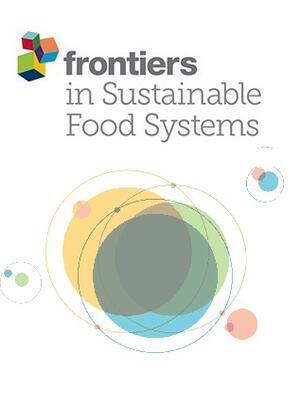
Environmental and food security implications of livestock abortions and calf mortality: a case study in Kenya and Tanzania
- Gurmu, Endale B.
- Bronsvoort, B.
- Cook, Elizabeth A.J.
- Lankester, F.
- Özkan, Ş.
- Rosenstein, P.K.
- Semango, G.
- Wheelhouse, N.
- Wilkes, A.
- Arndt, Claudia





